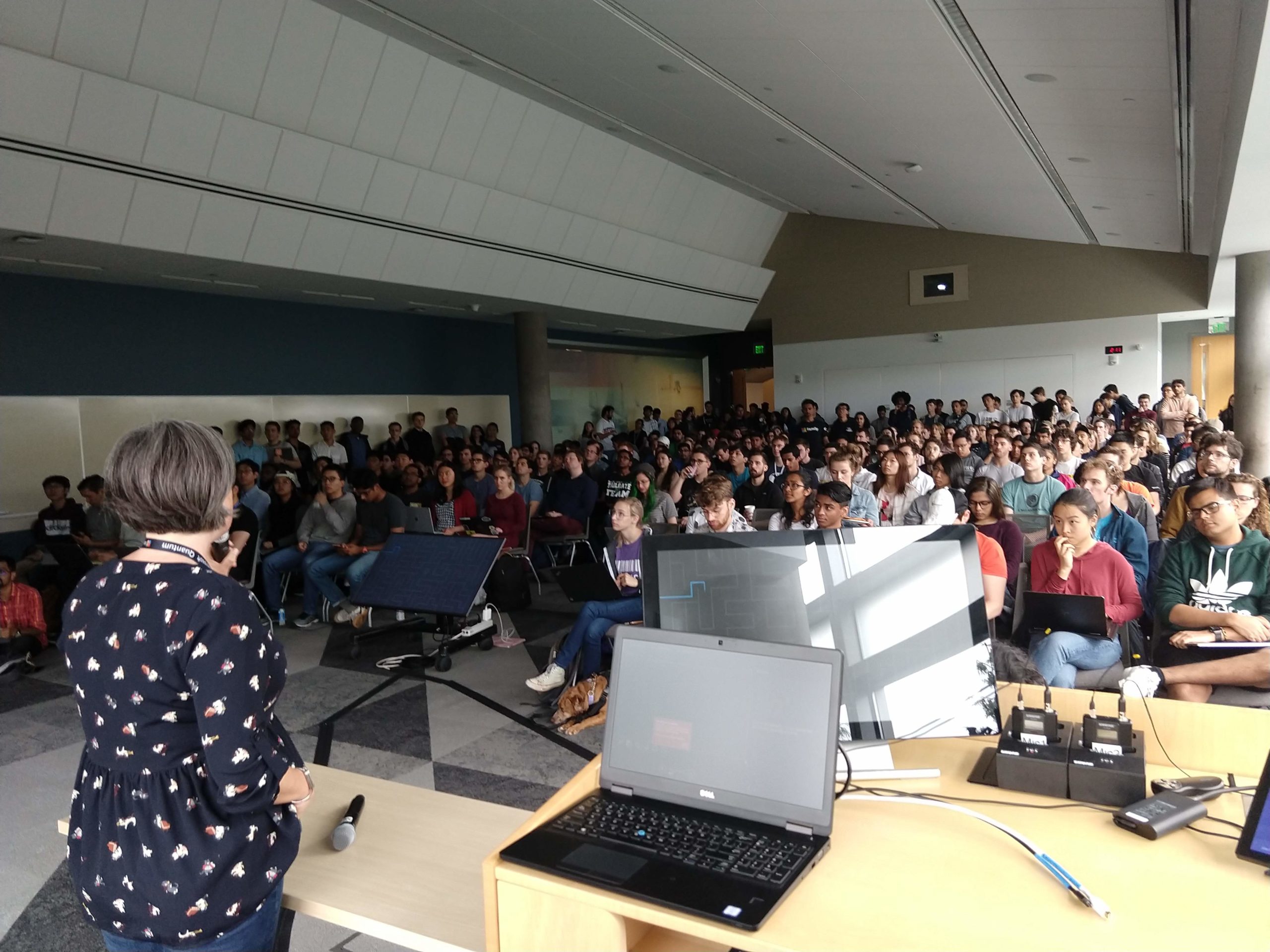Earlier this month, we opened applications for internship positions with the Microsoft Quantum team. Internships are an important part of developing a quantum-ready workforce, and it’s always exciting to see new faces bring fresh energy and ideas into our work!
We hear from many students that they’re excited about quantum computing, but are not sure whether they should apply. So we’re going to demystify our internships by sharing some of the projects our past interns have worked on and how being a research intern with our team differs from being an engineering intern.
Research internships
The Microsoft Quantum internship program started back in 2012 with just three research interns. The program has been growing steadily ever since, reaching a total of 21 interns during summer 2019. Research interns are typically graduate students pursuing a PhD in quantum computing or related subjects. Their internship projects involve exploring new research directions under guidance of full-time researchers on our team, resulting in a paper or even a patent. These internships can grow into a long-term research relationship, and several of our former interns have joined our team as full-time employees soon after their internships. Here are just a few examples:
- Bettina Heim worked on decoding surface codes using maximum likelihood decoding.
- Vadym Kliuchnikov developed an algorithm for circuit synthesis – approximating single-qubit unitary operations with a limited set of gates used by some topological quantum computers.
- Thomas Haner worked on reducing resource requirements for evaluating classical functions on quantum computers, including addition using dirty qubits and evaluating piecewise polynomial approximations.
- Adam Paetznick developed a decomposition technique that uses non-deterministic circuits to approximate single-qubit unitary operations.
Software engineering internships
In summer 2019, undergraduate students joined our internship program for the first time in software engineering positions. These students focused on software-oriented projects such as improving the Quantum Development Kit. Although our undergraduate software engineering internship are much newer, we already have some neat success stories to share:
- Sarah Marshall implemented code completion for Q# and a state visualization tool that allows you to track the state of the Q# program during the simulation – and just this week she joined the team as a full-time software engineer!
- Rory Soiffer built a framework for Q# code optimizations.
- Artem Astapchuk created a set of tutorials on the basics of quantum computing.
Microsoft Life
Most of our interns join us on the Microsoft Redmond campus. This means they can participate in all summer events there, from the all-Microsoft OneWeek Hackathon and celebration that bring together interns and employees across the company to intern-only events like Microsoft Intern Puzzle Day and workshops hosted by various teams.
 “Introduction to quantum computing” workshop hosted by our team for all Microsoft interns
“Introduction to quantum computing” workshop hosted by our team for all Microsoft interns
They also get ample exposure to various directions of ongoing quantum computing research, both via their fellow interns’ presentations of their projects and via a weekly journal club.
Does this sound like a great way to spend your summer? Apply to our open intern positions today! Application deadline is January 31st.

0 comments